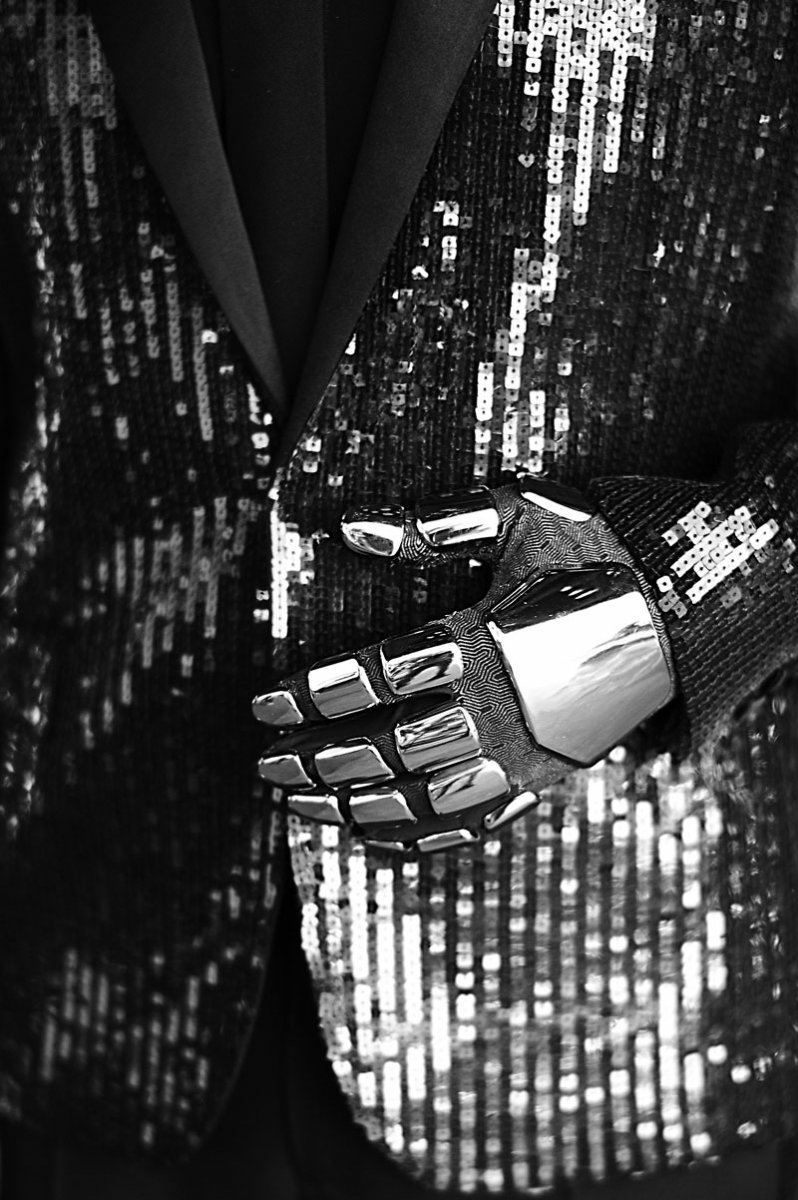For an album that is devoid of sampling, subscribing to an almost arrogant adherence to live instrumentation, Daft Punk‘s new album is incredibly archival. The title Random Access Memories is fitting and descriptive. As on 2001’s Discovery, the French duo are still passionately in love with the music they grew up with — aren’t we all? As traditionally dispassionate and antiseptic as the French people robots are, this record is supremely warm, soulful and human. It functions almost as an antidote to 2005’s bleak and mechanical Human After All.
Furthermore, Random Access Memories is remarkable in its complexity. It is at once contemporary and regressive, post-modern yet unironic and powerful while mellow. It’s the sound of two guys flexing their muscles in a genre in which they are sought-after experts. At some point, dance music left the clubs and established dominion over the charts and Daft Punk use Random Access Memories to instruct listeners; without being didactic, they show where the music they’re dancing to came from, what it should sound like and what it could sound like.
Give Life Back To Music opens like the libretto of a stage epic. A vocodered voice commands you to “Let the music of your life give life back to music” accompanied by the trademark sound of Nile Rodgers’ guitar. That sound, since the 1970s, has been sharp, tight, clean and rhythmic. It is neither wholly disco nor R&B or rock, a sound that bleeds cool and has the rest of the music following its intricate and funky lead.
The opener is as infectious as anything on the 12 tracks that follow, full of spirit and celebration. Daft Punk aren’t making dance music so much as they’re making music that makes you want to dance. They’re saying that music is supposed to make you wanna dance. These guys were studio geeks before they were DJs, musicians before they were geeks and delinquents before that. Who better to show you how to have a good time?
Giorgio By Moroder is something utterly unique. The title subject, disco legend Giorgio Moroder, tells his story in a weathered, accented voice, articulating a mission statement that Daft Punk have adopted as their own: “I wanted to do an album with the sounds of the ’50’s, the sounds of the ’60’s, of the ’70’s and then have a sound of the future.” He warmly introduces himself – “My name is Giovanni Giorgio, but everybody calls me Giorgio” – followed by the drop of a sharp, arpeggiated synth line. It oscillates as the instrumentation begins to slowly build. Another interlude from Moroder and things ascend to an awesome height. Sharp and pounding drums give way to a gorgeous string arrangement before things are brought back down for a vinyl scratch solo accompanied by a groovy wandering bass…and then a blitzing guitar solo, bring back those string arrangements too. Powerful, unique and glorious.
Random Access Memories is a romantic album in the most explicit sense of the word. Songs such as The Game Of Love, Within and the Julian Casablancas-collaboration Instant Crush deal with love and heartbreak in a brash and teenage way without ever sounding saccharine or overwrought. This is conducive to one of the album’s grandest achievements, which is a lack of irony despite being, at its core, a post-modern record.
On the more animated tracks – Lose Yourself to Dance, Touch and first single Get Lucky – the guitars flick and bounce, the beats pound and charge, the bass wanders, strolls and shimmies and the synths now punctuate the groove rather than taking their place at the forefront of the music. Daft Punk is now an ensemble sound rather than the funky cacophony emanating from a 909 and an 808, though there’s still plenty of that funky cacophony.
The songs Beyond, Motherboard and the especially ambitious, Daryl Braithwaite-sampling Contact function as lush suites of electronic noise, mobilising beats and rhythms, and sharp, retro synth, with opulent orchestral furnishings for good measure. These are true electronic symphonies, examples of a robotic language with a human accent.
“Disco sucks” — believe it or not, this is one of the most racist statements of the 20th Century. It belongs on the proverbial “wrong side of history” along with signs indicating coloured drinking fountains. The “movement” was spearheaded by rock and country DJ Steve Dahl who organised an anti-disco rally at Comiskey Park in Chicago, the city that would later serve as the womb for house music. Under the guise of a promotional stunt, rally attendees were encouraged to bring disco records – which had moved from underground gay clubs to the suburbs with the success of Saturday Night Fever – to the stadium to be demolished with explosives.
One of the ushers at Comiskey Park was a young man by the name of Vince Lawrence, who five years later would produce the first house song ever with friend Jesse Saunders. Lawrence watched as 50,000 people filed into the stadium carrying stacks of vinyl. “What I noticed,” he said, “was people were bringing records and some of the records were disco records…and some of those records were just black records, they weren’t disco. They were just black records, R&B records…and that got accepted and blown up along with Donna Summer and Anita Ward.”
It is funny how we as human beings ascribe an almost omnipotent power to music, no matter how goofy and lighthearted the form it may ultimately take. A country DJ launched a violent backlash against dance music because it was made by black people for gay people to get down to, conservative religious websites keep lists of music they deem incendiary and even “evil,” the US Congress spends taxpayer money on hearings about a single lyric in one rap song, heavy metal is said to be able to make you shoot up schools or commit suicide, and though these are examples of people being reactionary and misguided, it stems from the awe we collectively feel when in the presence of music. Because the truth is that no-one quite understands it.
What Random Access Memories is is a sonic treatise on this ineffable might that music possesses, the power contained inside of a chord that we all seem to agree is there. In a way that is enjoyable and entertaining, it presents it as a variegated and sweeping canvas replete with beauty, harmony and joy, as well as something that is organic and, alas, human.
Listen: Daft Punk – Random Access Memories
Daft Punk – Random Access Memories tracklist
1. “Give Life Back to Music” (featuring Nile Rodgers and Paul Jackson, Jr.) – 4:34
2. “The Game of Love” (instrumental) – 5:21
3. “Giorgio by Moroder” (featuring Giorgio Moroder) – 9:04
4. “Within” (featuring Chilly Gonzales) – 3:48
5. “Instant Crush” (featuring Julian Casablancas) – 5:37
6. “Lose Yourself to Dance” (featuring Pharrell Williams and Nile Rodgers) – 5:53
7. “Touch” (featuring Paul Williams) – 8:18
8. “Get Lucky” (featuring Pharrell Williams and Nile Rodgers) – 6:07
9. “Beyond” (lyrics by Paul Williams) – 4:50
10. “Motherhood” (instrumental) – 5:41
11. “Fragments of Time” (featuring Todd Edwards) – 4:39
12. “Doin’ It Right” (featuring Panda Bear) – 4:11
13. “Contact” (featuring DJ Falcon) – 6:21
Photos: Daft Punk Saint Laurent Shoot
Daft Punk
-
0de0cd680849ee0596fb9dc10b22896c
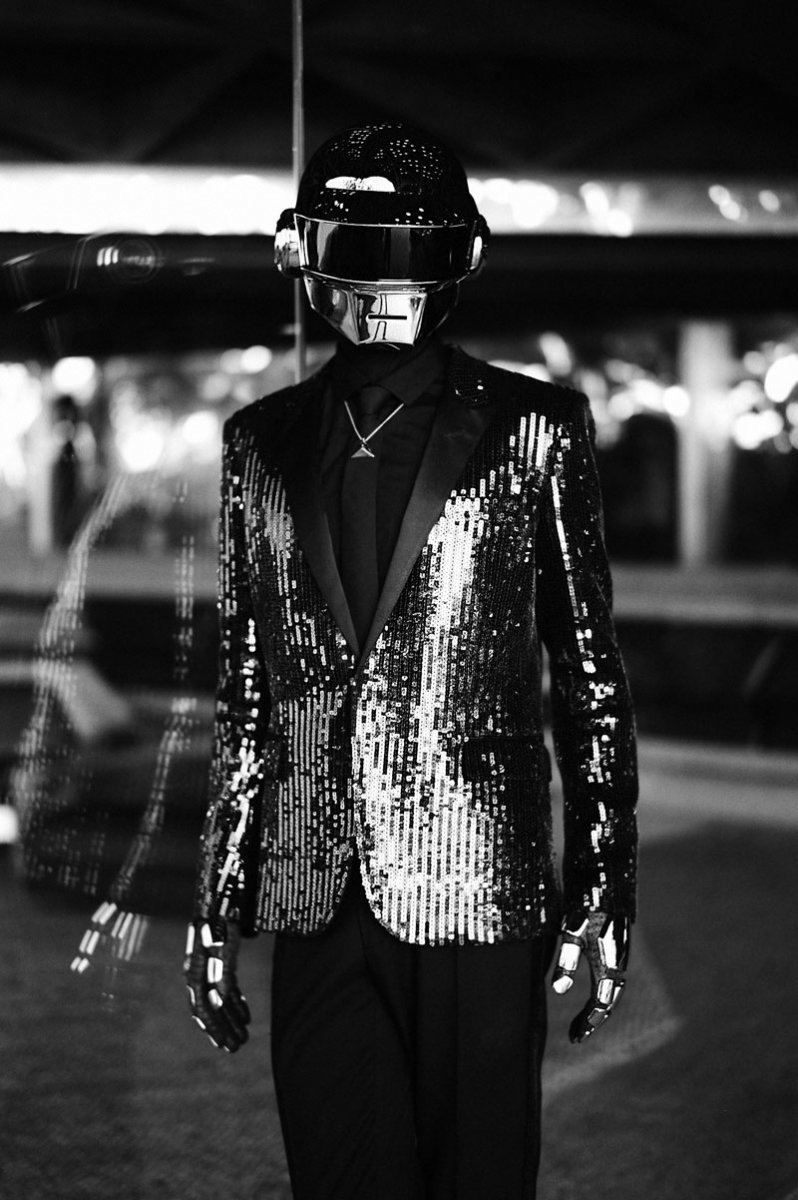
-
33ed8b082bdff409daa53c84bcf9af5a
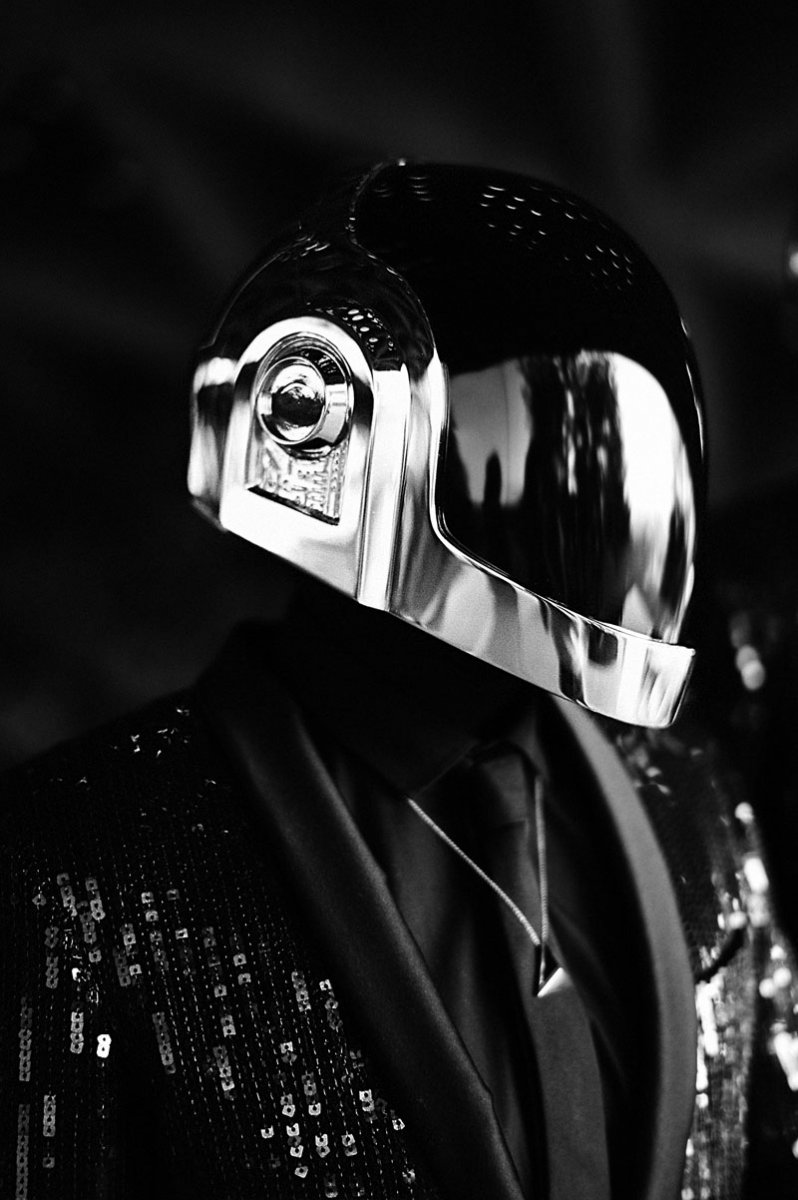
-
715c991e90617870780eff74c330d5ad
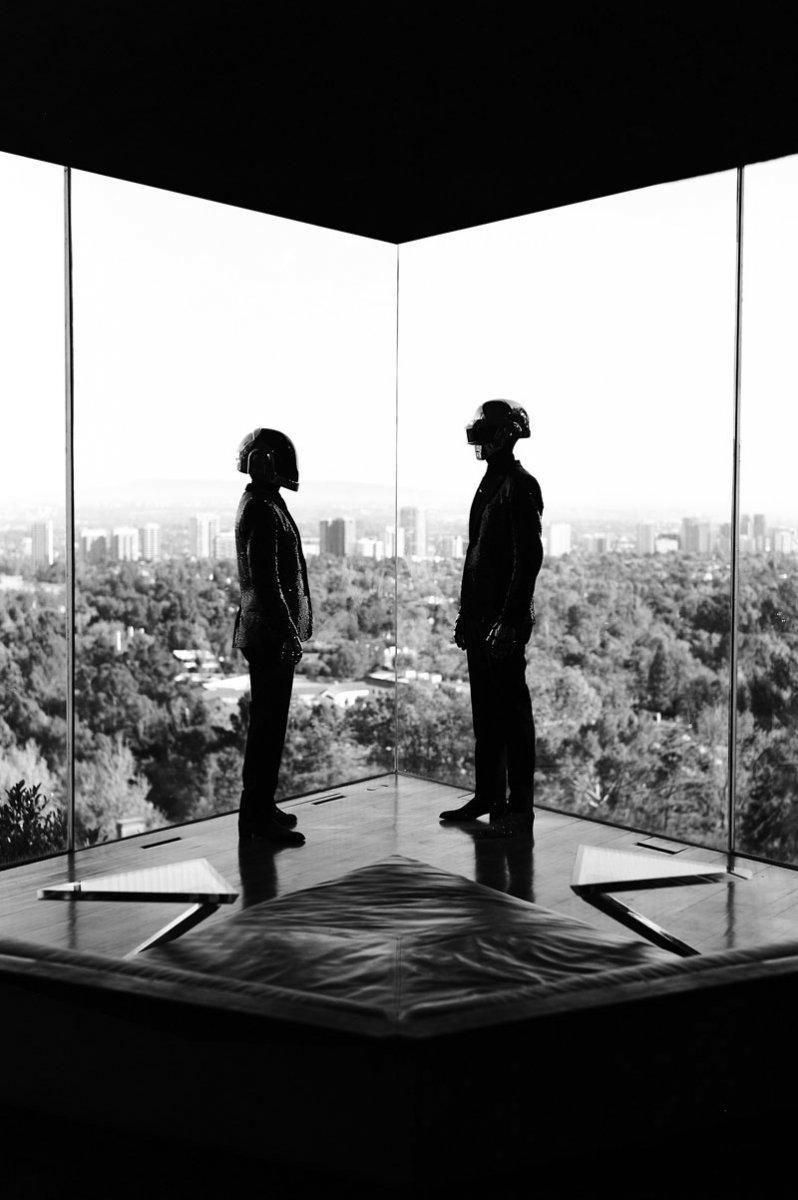
-
85955acb0b7aaa62b4b7d6efd7404bd6
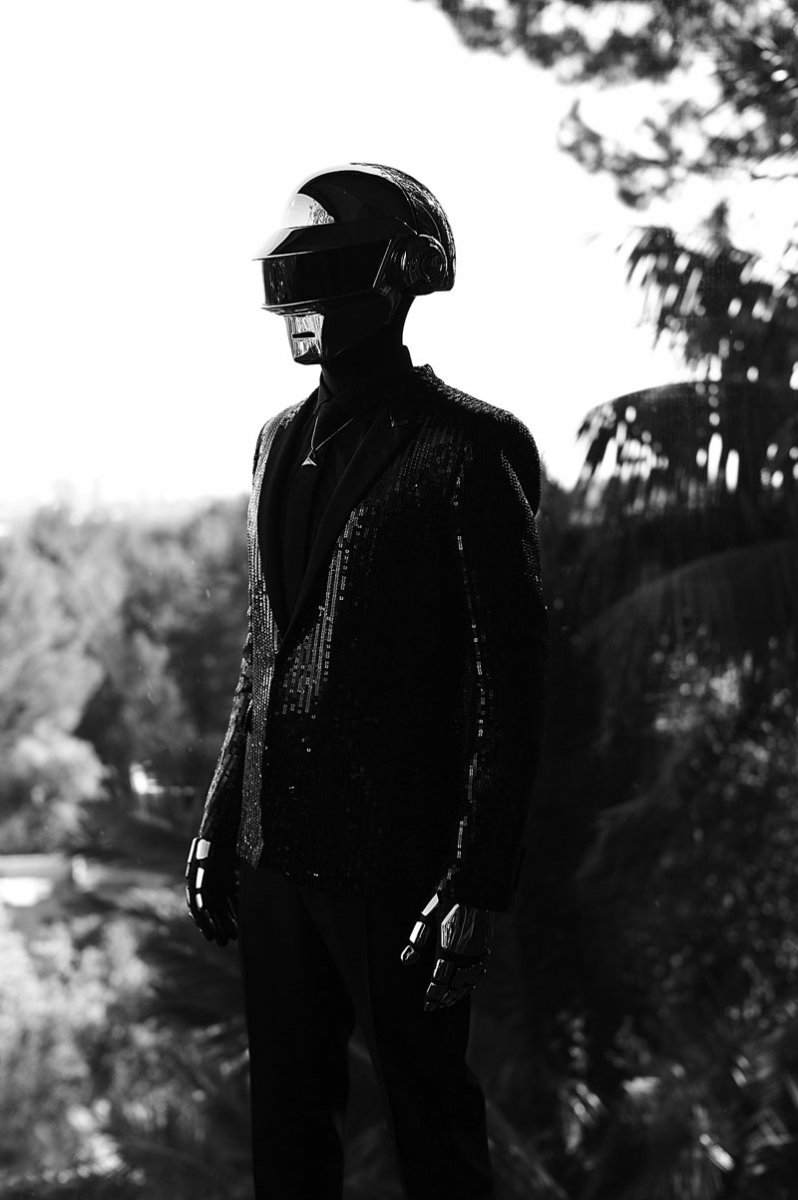
-
C530ceb0f7eed099173a9dead49d2582

-
D26d48a51793ec24120d61046110554d
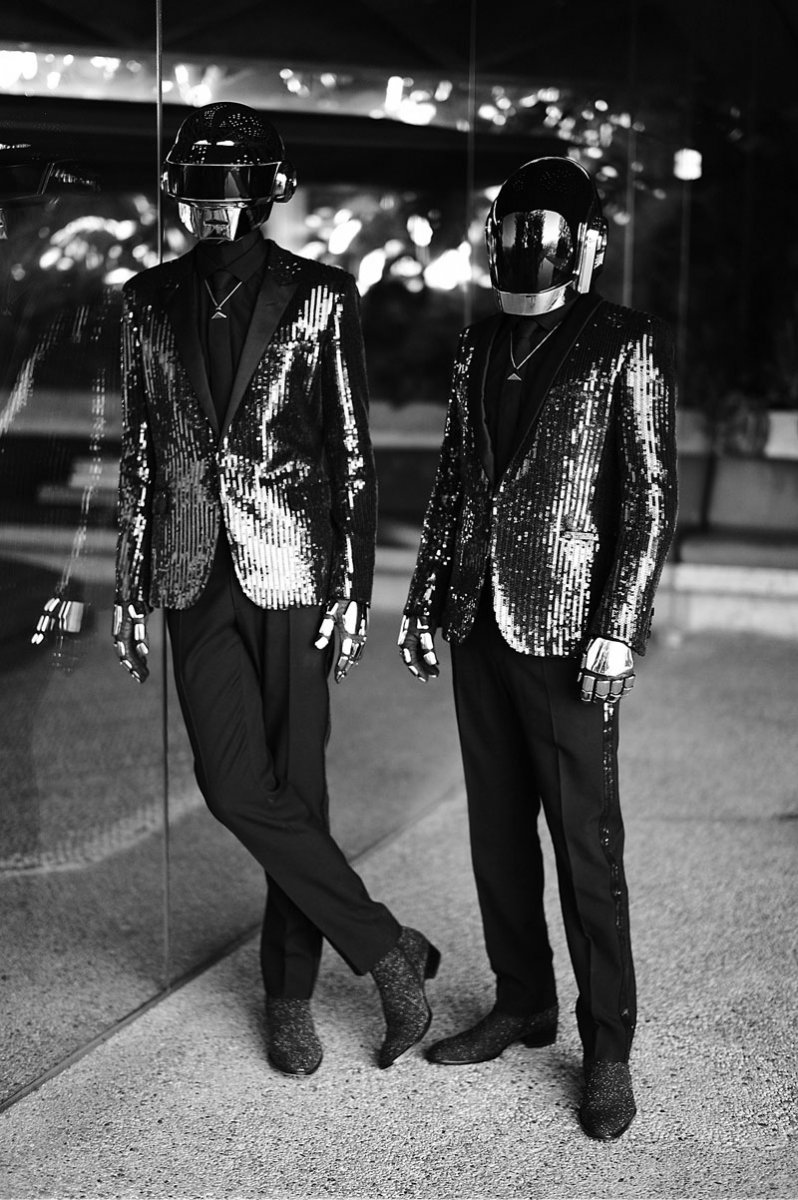
-
E2a6f92861635df5b2dedc03db26c917
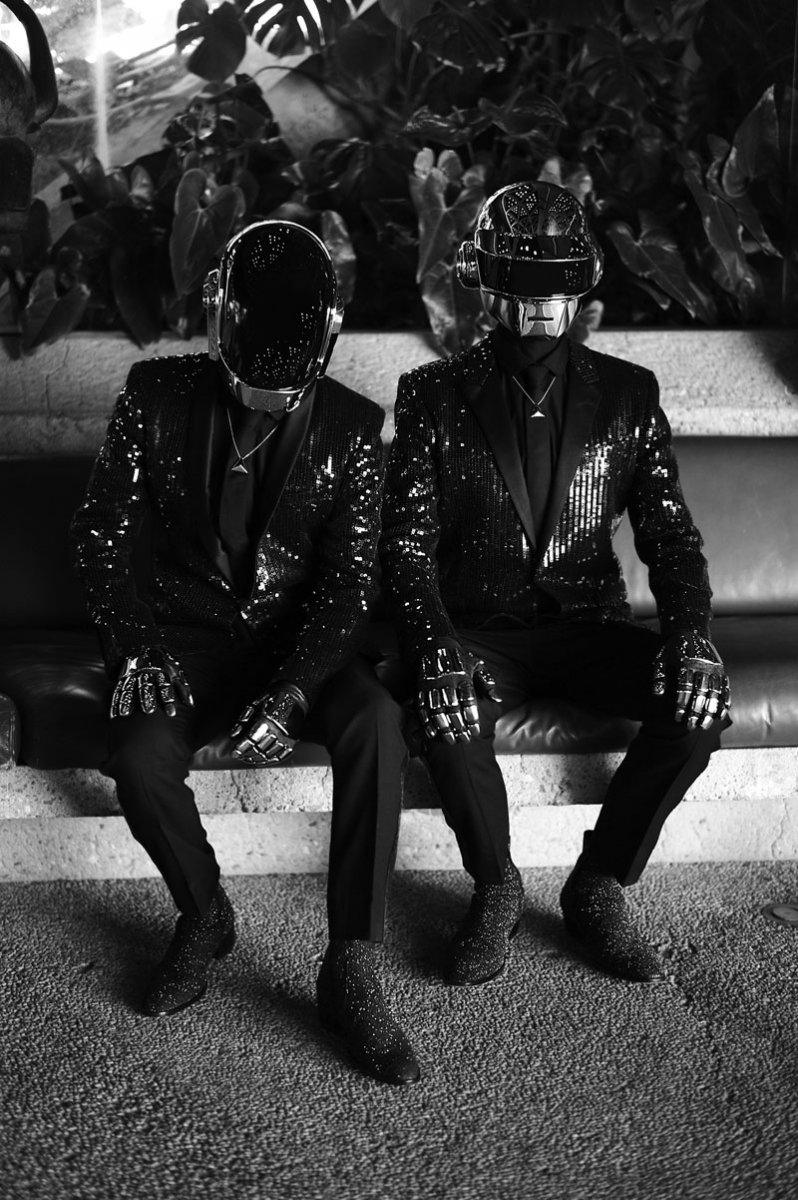
-
E842dcf65d57981376801b8b283b9540
